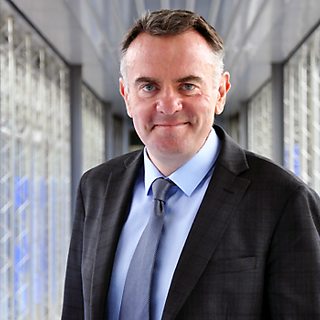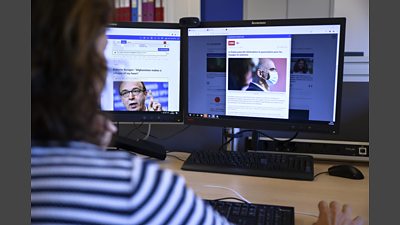
TNI partner, The European Broadcasting Union (EBU) brings together 113 member organisations in 56 countries. As they celebrate 100 years of public service media, EBU Director General Noel Curran writes about the role members play in protecting democracy.
We are all aware of the enormous contribution public service media makes to society – for 100 years, we’ve been keeping people informed, educated, and entertained. But we should not forget the critical role public service media (PSM) also plays in upholding our democracies and fostering citizenship.
Sadly, democracy is currently in decline across the world and is now at its lowest levels for over 30 years. Numerous studies point to a global trend towards authoritarianism with basic democratic values under threat even here in Europe.
We’ve seen levels of democracy decline in two-thirds of our Members’ countries over the last ten years.
When democracy is under threat, freedom of expression and of the media is often the first thing to suffer. As autocratization unfolds, governments will first seek to control the media and restrict civil society, and then feed social polarization by disrespecting political opponents and spreading disinformation.

And that’s why PSM has such an important role to play in upholding democracy. Our Members provide people with independent, trusted news and a diversity of viewpoints; encourage political participation; and help counter the spread of fake news.
Where public service broadcasters have a high market share, we know citizens are much less likely to think of authoritarian leadership as a good way of governing.
Our research has shown how strong, well-funded PSM goes hand-in-hand with a nation’s democratic health.
For example, citizens watch more public television and listen to more public radio in stronger democracies. Likewise, stronger democracies invest more in their national public service broadcasters.
We also know where PSM is well-funded, citizens are far more likely to participate in and show an interest in politics.
The universal remit of PSM allows broadcasters to reach all citizens with balanced coverage and a wide range of viewpoints. And that helps support society by empowering citizens – be that by providing trusted news; creating a sense of understanding among diverse communities; connecting citizens to public life or encouraging them to participate.
through projects like the Trusted News Initiative, PSM can help ensure audiences get news they can trust
In 75% of European countries, citizens are increasing concerned about misinformation. But investment in PSM pays off in terms of fighting fake news. A study of online news content by Humprecht & Esser (2016) demonstrated that in countries with stronger PSM, a more sophisticated online news landscape has emerged, meaning that there is greater transparency in linking to sources, greater provision of background information and follow-up communication with the audience.
With over 40,000 journalists across Europe, linked up with other global news outlets through projects like the Trusted News Initiative, PSM can help ensure audiences get news they can trust. Targeted initiatives such as Rai’s fake news unit in Italy or Georgia’s GPB AntiFake help verify online information and combat false and misleading news.
What is clear is that we need adequate funding for public service media if we are to help defend society from the crisis of democracy we are witnessing.
If we want to continue to have an engaged, informed citizenry and a healthy democracy, we must invest in and protect the independence of our public service broadcasters.
We must also defend our journalists from the alarming number of attacks they are being subjected to, both verbal and physical.
We now have the data to demonstrate how PSM supports democracies - combatting the danger of misinformation and countering the rising tide of polarization across the continent.
As we mark its centenary in 2022, it’s even more important to ensure we protect it for future generations.
- First Draft Part One: Election disinformation tactics and strategiesIn the first of a two part blog on disinformation and elections from First Draft, Esther Chan writes about how journalists can tackle the problem.
- How not to amplify bad ideasMike Wendling, Editor of �鶹�� Trending, describes the problem of amplification and how to avoid it.
- EBU view: 100 years of public service mediaThe EBU's Noel Curran writes about the role members play in protecting democracy
- Facing the information apocalypseRadio-Canada's Jeff Yates writes about his role tackling disinformation
